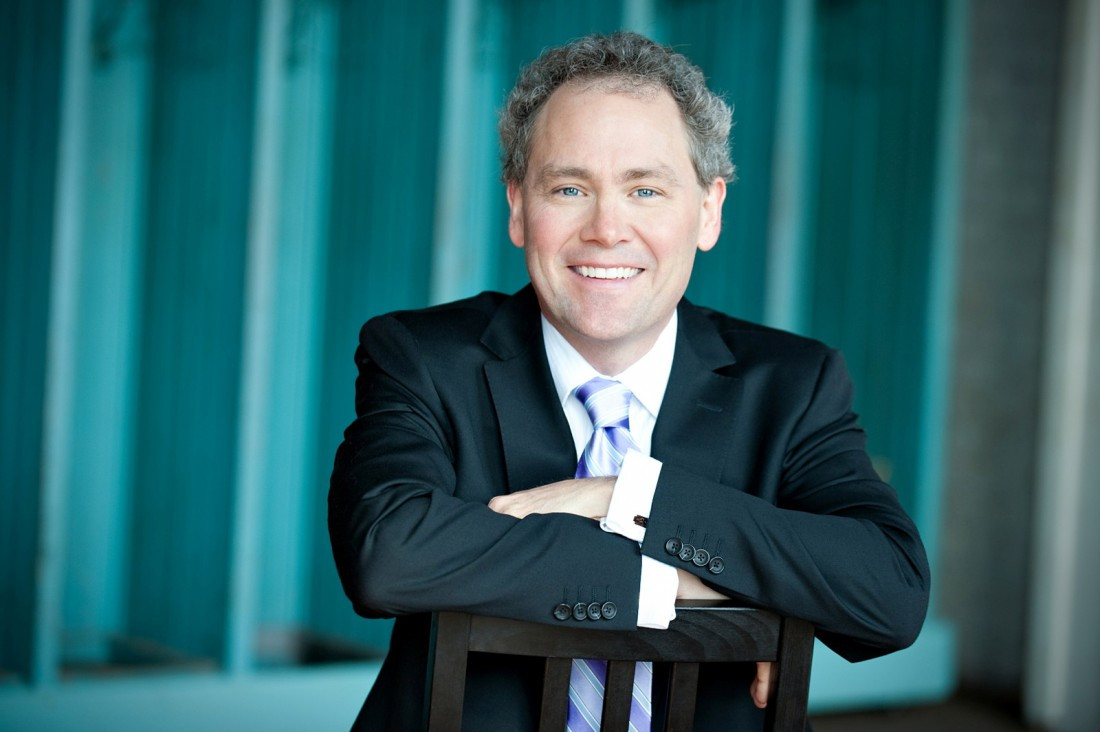Captive audience
In the classical music world, people experience experiences
Renowned horn soloist and conductor James Sommerville is coming to Winnipeg for one night of discussion and another evening of fantastic music.
The principal horn player for the Boston Symphony Orchestra and music director and conductor of the Hamilton Philharmonic Orchestra will speak at McNally Robinson Booksellers at Grant Park Shopping Centre on Tuesday Nov. 26 with Winnipeg-born composer Karen Sunabacka.
The next day he will be both conducting and performing with the Manitoba Chamber Orchestra (MCO) to play works by Sunabacka, Beethoven, the late Polish composer Witold Lutosławski, Joseph Boulogne and Mozart.
“As far as I know, the Mozart concerto I'm conducting [Mozart’s E-flat Major Horn Concerto] has never been performed in Winnipeg before,” Sommerville says.
Sommerville is also excited to present work by Boulogne, an eighteenth-century French-Caribbean figure also known as Chevalier de Saint-George.
“He was an incredibly interesting person,” Sommerville says. “You could make a movie about him. He moved in all the highest circles in Europe; he was a brilliant violinist and composer, and a master swordsman. He was also a black man, which was virtually unheard of at the time.”
Sunabacka, assistant professor of music theory and composition at Providence University College, joins the company of these historic artists. She composed an earlier work for MCO to honour her Métis grandmother. Never to Return reflects her Scottish history in memory of her great-great-grandmother Mathilda Clouston (nee Johnson).
“ I feel that music can be a bridge between peoples and cultures. Choosing to use three Scottish melodies was a way for me to represent my great-great-grandmother Mathilda, a way to tell her story. Karen Sunabacka, composer
“It was fiddle music that brought my Scottish grandfather and Métis grandmother together,” she says. “I feel that music can be a bridge between peoples and cultures. Choosing to use three Scottish melodies was a way for me to represent my great-great-grandmother Mathilda, a way to tell her story.”
Never to Return echoes the life of her ancestor, who was committed to the Manitoba Asylum after the death of her children.
Mathilda's story has resonance in Winnipeg, following a growing response to postpartum depression after the highly-publicized Lisa Gibson infanticide-suicide incident which occurred earlier this year.
“The only thing we can control is the ways we choose to deal with our suffering,” Sunabacka says. “For me, hearing the stories of others gives me understanding and hope because I can see that others have survived similar experiences.”
Sommerville explains that while none of the works are religious in nature, human beings thrive on live music and the opportunity for sacred contemplation.
“There are fewer and fewer ways to bring people together in a contemplative, peaceful setting… to create an oasis where your cellphone isn't going off, or where you're only half-listening on the bus,” Sommerville says.
“You give all your concentration in this space. So, it's not religious necessarily, but there is something sacred about music presented for people like this.”







